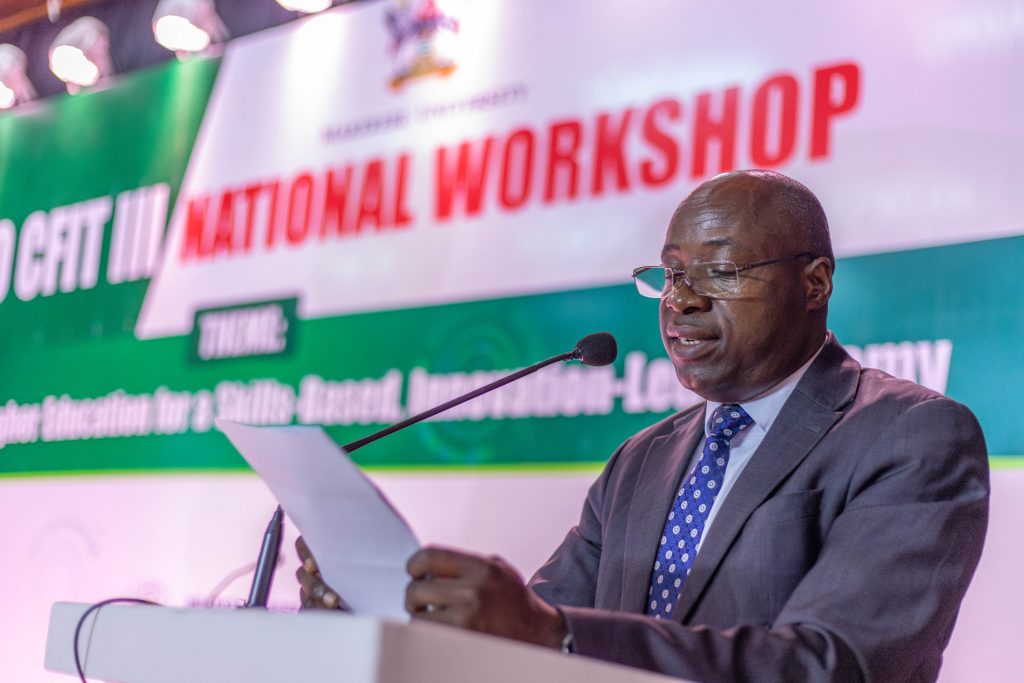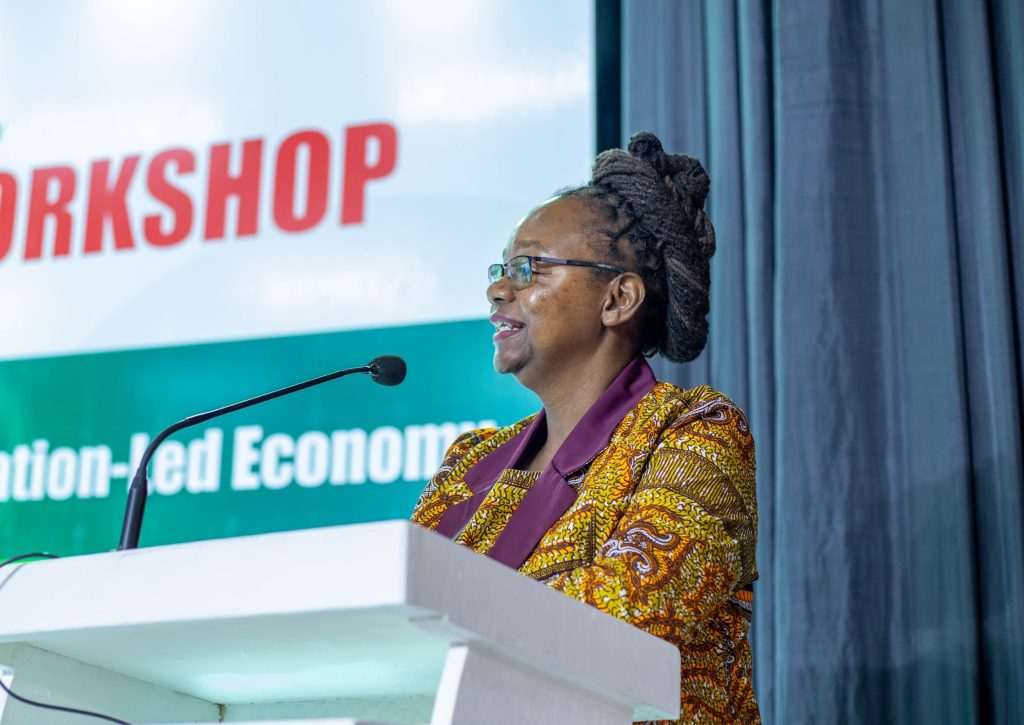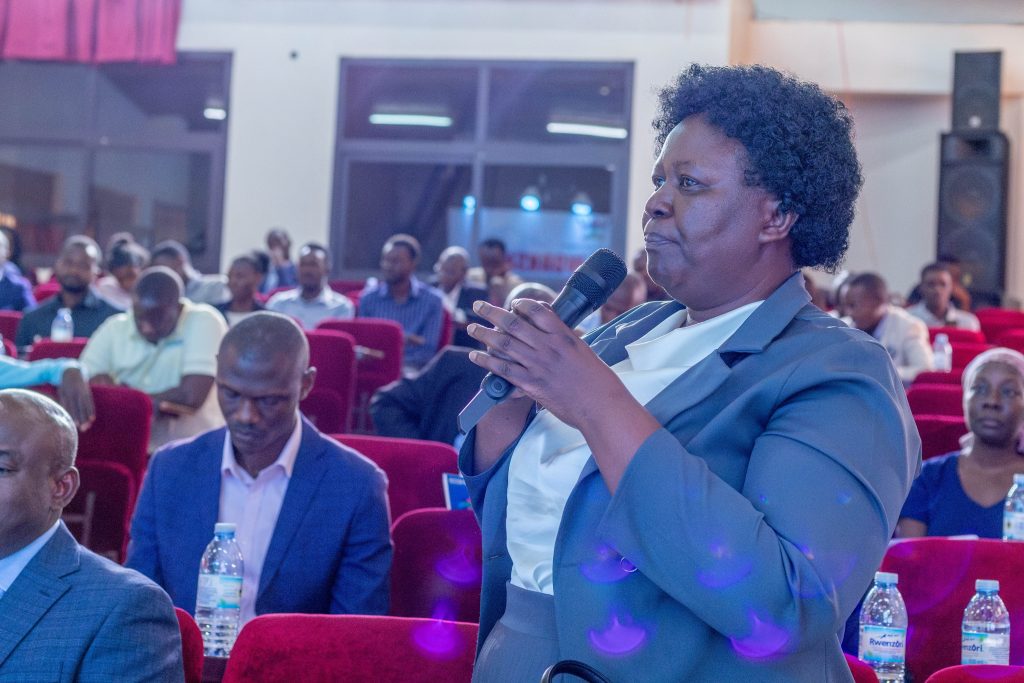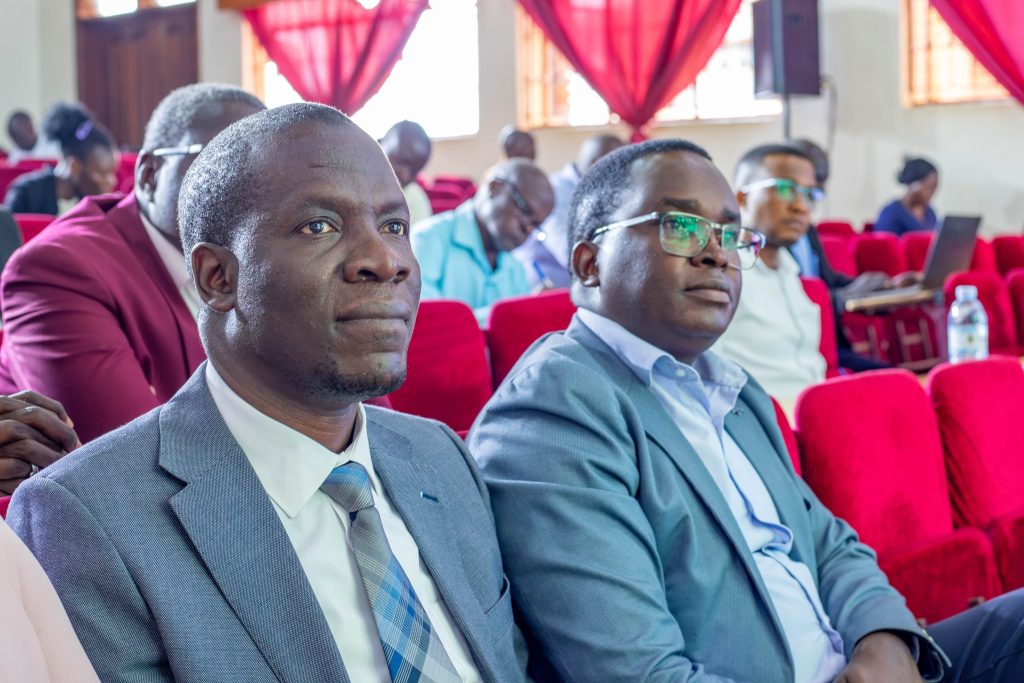Today, Makerere University and Mbarara University of Science and Technology have hosted a National Workshop to conclude the China Funds-in-Trust Phase III (CFIT III) Project. Implemented with UNESCO, the project has transformed engineering education through competency-based reform and industry linkages. The workshop showcased student innovations, reflected on impact, and discussed academia-industry collaboration.
The workshop featured CFIT III Impact Assessment Report which highlighted lessons learned and sustainability pathways. This milestone event brought together academia, industry, and government to foster partnerships supporting innovation ecosystems and driving economic development in Uganda, it being one of six African nations benefiting from the initiative.

The Vice Chancellor of Makerere University issued a powerful call for Ugandan scientists and technologists to drive national transformation through innovation, asserting that the country’s stability hinges on job creation by its own skilled populace. Speaking at the National Workshop of the UNESCO CFIT III (China Fund-in-Trust) at CEDAT, Professor Barnabas Nawangwe highlighted the critical role of universities in this endeavor.
He expressed profound gratitude to the Government of China for providing the funds to UNESCO for the initiative, and then to the Government of Uganda for its greatest support to the technology and science sectors. He emphasized the responsibility resting on contemporary innovators, stating, “We will have no excuse not to transform our country. There is absolutely no reason why each one of us should not make our own contribution to changing Uganda.” He also lauded the UNESCO Uganda office for its ongoing support to national programs.
Drawing lessons from global models, Nawangwe sharply contrasted Uganda’s educational approach with leading innovation hubs like MIT and China. Recalling an encounter with a Nigerian professor at MIT, he quoted a critical assessment: You are teaching engineering the same way it was taught in the 50s. There’s no way you are going to transform your country. He underscored that the whole American economy is based on innovations anchored in universities, a model he envisions for Makerere, aiming to become a research and innovation-led university. He cited China’s success as the factory of the world, driven by university innovations and patents.
Prof. Nawangwe unveiled Makerere’s ambitious goal to establish an innovation board and cultivate an environment where the university’s Technology and Innovation Centre can begin churning out companies.
“If we can produce at least 50 companies every year, we are going out to create jobs for the multitude of the less privileged Ugandans,” Nawangwe articulated his aim.
He envisioned that the national stability will come directly from economic empowerment, not out of politics but will be harnessed, ‘if we create jobs for that multitude of young people who are on the streets now, the bank of the industrialization of Uganda must be by the Ugandans.’
His counterpart, Professor Nickson Kamukama, Deputy Vice-Chancellor for Academic Affairs at Mbarara University of Science and Techy (MUST) and Project Director for UNESCO CFIT III, noted that a lot has been achieved basically the re-skilling and up-skilling as it was the key priority.
He stressed that MUST has proactively prepared for the new competence-based curriculum expected to impact university entrants from 2027 having extensively trained its lecturers in pedagogy training and context-based training following a new institutional policy: “Our policy is that as a lecturer if you don’t have a certificate when it comes to 2027, it will be hard for you to appear on the timetable,” Professor Kamukama revealed, inking the critical need for educators to adapt to hands-on, student-centered learning.
The DVC explained that this shift aims to foster job creators rather than job seekers. “It is believed that given those competencies, skills, a student product can manage to start a project and move on instead of looking for jobs,” he noted.
He however called for increased investment in practical training, requiring arguing government and partners to support infrastructure like demonstration farms and facilitate closer industry-academia linkages to ensure students gain essential field experience.
In his address, Timothy Musoke Ssejjoba, Commissioner for University Education at Ministry of Education and Sports, lauded the project’s success for navigating daunting challenges and significantly impacting higher education for employability. He recalled the dark days of COVID-19 when project continuity seemed almost impossible and praised the institutions for their resilience to go through with this and for demonstrating remarkable innovation, achieving great results despite initial concerns about limited funding.
Ssejjoba extended profound gratitude to UNESCO, commending its great coordination and pivotal role in securing funds from the People’s Republic of China. “UNESCO!, you pushed us and we have been able to move mountains,” he stated, acknowledging the partnership’s instrumental force.
He emphasized the project’s critical focus on addressing national unemployment and skill mismatch through robust labor market analysis and subsequent curriculum review, this ensures educational offerings align with industry demands. Furthermore, the initiative is pioneering a competence-based assessment system, directly aiming to lead higher technical education into employment.
He went on to cite other milestones like; strengthening industry-academia linkages and a new emphasis on green skills to foster sustainability which aligns with the project, with the broader Campus Africa vision for African innovation.

Similarly in his Keynote address, Dr. Halid Kirunda, the Director Research at National Agricultural Research Organization (NARO), shared the success of the project, which has made significant strides in equipping academic leaders with knowledge in cultural design and competence, launching entrepreneurship, micro-credential short courses, and supporting agro-biotech startups that create jobs and income. He stressed that such initiatives demonstrate the potential for innovation and entrepreneurship to drive economic transformation and address the country’s development challenges.
He stated that universities and technical institutions must become launch pads for enterprise and applied research, rather than just repositories of knowledge. He emphasized the importance of industry-academia partnerships in driving innovation and economic transformation, citing examples of successful collaborations between universities and industries in other countries, noting, agriculture is a sector ripe for innovation, with universities and research centers developing technologies like banana wine and smart irrigation systems.
Kirunda called for stakeholders to commit to institutionalizing Competence-Based Education and Training (CBET) frameworks, investing in entrepreneurship training, and strengthening academia-industry research consortia.

Delving into CFIT Project Impact, Dr. Dorothy Okello, Principal Investigator of the UNESCO CFIT III project from Makerere University, stated that, the project has supported the development of innovative solutions, capacity building, and industry partnerships, enabling students and staff to turn their ideas into products hence achieving significant milestones, including the development of micro-credential short courses, training of academic staff in pedagogical skills, and support for startups.
Dr. Okello noted that the project has strengthened industry partnerships, enabling students and staff to access markets, expertise, and resources. She emphasized the importance of collaboration and partnerships in driving innovation and economic growth, and called for continued support for innovation and entrepreneurship initiatives in Uganda.
“The project has enabled Makerere University to become a hub for innovation and entrepreneurship in Uganda, with a focus on practical skills development, industry partnerships, and innovation. The project’s achievements include the development of a competence-based framework, an instructor handbook, and a five-year strategic plan aligned with industry and university priorities,” she stated.
She spotted the importance of embedding green skills for green jobs in the curriculum and the potential for innovation to drive economic growth and development in Uganda with need for a national innovation support framework, funding for university innovation ecosystems, and support for industry-academia partnerships.
Like others, she called on universities, industry, and government to work together to promote innovation and entrepreneurship in Uganda, and highlighted the potential for the project to serve as a model for future initiatives.
Her fellow Dr. Medard Twinamatsiko, the UNESCO CFIT Project Coordinator at Mbarara University of Science and Technology (MUST) mentioned, the project has supported the development of over 20 prototypes, establishment of innovation hubs, and industry partnerships, enabling students and staff to turn their ideas into products.
He highlighted the success stories of students who have benefited from the project, including those who have developed innovative products such as a renewable energy-powered poultry incubation system.

Dr. Twinamatsiko noted that the project has trained 173 academic staff in institutional pedagogy and competence-based education, enabling them to design and deliver courses that are relevant to industry needs.
He noted, ‘with its focus on practical skills development, industry partnerships, and innovation, the project has enabled MUST to become a hub for innovation and entrepreneurship in Uganda, with potential for replication in other universities and institutions.’
Faith Kateregga, a UNESCO CFIT III beneficiary and exhibitor at the Workshop showcased an innovative juice vending machine designed to dispense two types of juice. The machine’s user-friendly interface allows customers to select their preferred juice and insert coins, serving the customer in under one minute.
Kateregga plans to improve the design to cater for cashless transactions and multiple meal options. The machine’s potential applications extend beyond juice, with possibilities for dispensing other beverages like bushera, and water.
Another beneficiary, Kumarwa Cosmas, a graduate pending graduation from Mbarara University of Science and Technology (MUST), who showcased organic fertilizer stressed the comprehensive support provided to students, from conceptualization to market entry.

The program has enabled him to develop his ideas, create prototypes, and access financial support, expertise, and market linkages. Cosmas emphasized the importance of industry partnerships in ensuring that products meet market requirements. Through CIFIT, he has gained exposure and experience in exhibiting his projects at various levels, including national workshops.
Cosmas looks forward to taking his innovations to the international level, demonstrating the potential for Ugandan students to make a global impact.
The workshop also featured Students’ voices from the field as beneficiaries of the UNESCO CFIT III program shared their experiences and successes in applying theoretical knowledge to practical problems. One student interned at Uganda Industry Research Institute, working on mechanical engineering projects, while another gained hands-on experience at the Engineering Development and Innovation Centre (EDIC).
The students highlighted the opportunities to work with cutting-edge technologies, such as CNC machines, PLCs, and virtual reality. They also appreciated the chance to apply programming skills, including JavaScript, PHP, HTML, and React, to real-world problems. They expressed gratitude for the program, which has enhanced their technical skills, innovation capacity, and employability. They reported gaining practical experience, industry connections, and confidence in their abilities.

